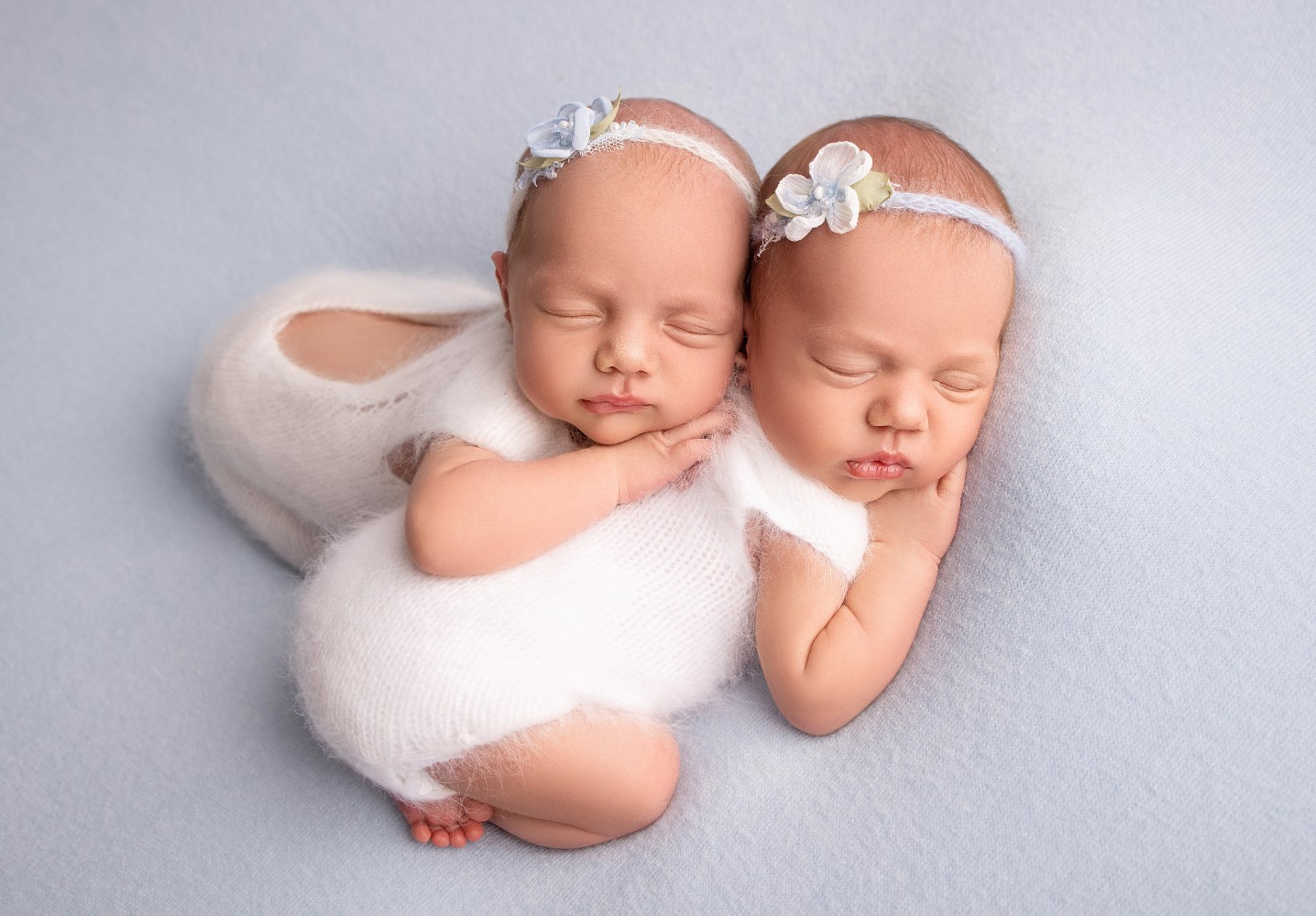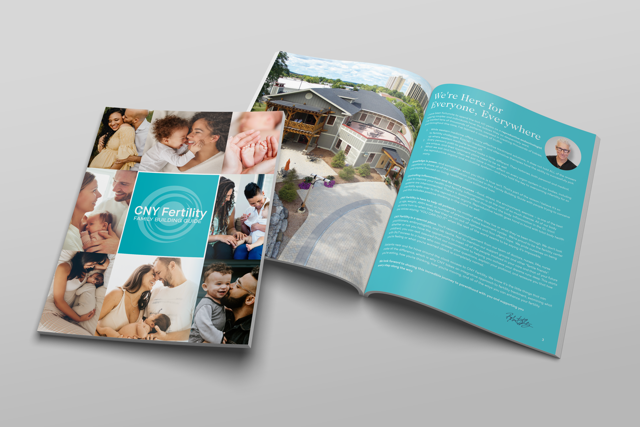What you need to know about IVF and twins

When you think about doing in vitro fertilization (IVF) to get pregnant, your first thought might be, “Does IVF increase the chance of twins?” While there is a possibility of twins, especially if you transfer two embryos, it doesn’t necessarily mean you will end up with two babies.
Here, we’ll walk through your chances of having twins with IVF, wanting to have IVF twins, what the potential risks could be, and how to talk with your fertility provider about your chances of a twin pregnancy.
Understanding IVF and twins
Type of twins with IVF
IVF twins can be identical or fraternal. Your chances of identical twins with IVF depend on many factors, including your family history. In IVF, the chances of fraternal twins depend on how many embryos you transfer.
Identical twins come from one embryo that divides into two. [1] This means if you have a single embryo transfer, and that embryo splits into two, you could end up with twins. The chances of an embryo splitting are slightly higher with IVF than in an unassisted pregnancy because with IVF, we manipulate the outside of the embryo, also known as the trophectoderm. Identical twins are always the same sex and share the same DNA because a single sperm fertilizes one egg.
Fraternal twins don’t share the same DNA. [2] These types of twins happen when more than one embryo implants. One way this can happen with IVF is when you transfer two (or more) embryos at the same time and two of them implant into the uterus. Because they don’t share the same DNA, they might be of different sexes. They receive half of their DNA from each parent, so they can have different appearances.
What are your chances of having twins for IVF?
Because of the advances in technology, the chances of twins with IVF have decreased in the last decade. [3] In 2011, the IVF twin rate was 8.4%, and in 2020, that number fell to 2.3%. This decrease is likely due to the increased popularity of single embryo transfers (eSET). The percentage of eSETs rose from 22.7% to 34.5% from 2011 to 2020. [4]
When looking at the odds of twins from a single embryo transfer, the chance of twins via IVF is anywhere between .1-2%, according to a number of different studies. [5] [6] [7] [8]
On the other hand, your chance of twins with IVF, if you transfer two or more embryos, ranges anywhere from 12 to over 30% depending on the number of embryos transferred, age of the person when the eggs were retrieved, type of embryos (day 3 or blastocyst embryos) quality of embryos and overall prognosis. [9]
Can you pay for IVF to have twins?
If you want to do IVF to have twins, you’re not alone — There are couples who want IVF twins. A 2018 Spanish study surveyed 399 couples undergoing IVF and found almost 60% of them preferred twins to a single baby. [11] The main reason was to avoid having to do another IVF cycle.
How much is IVF for twins?
The American Society for Reproductive Medicine (ASRM), along with CNY, recognize that each person’s medical history, preferences, and situations are unique in determining how many embryos to transfer and that financial pressures are often the tipping point in favor of multiple embryo transfers and the hope for twins. [12] In fact, studies show that having IVF insurance coverage significantly reduces the transfer of multiple embryos. Unfortunately, a minority of the population in the US have coverage for IVF. [13] [14]
The cost of having twins from IVF depends on which clinic you go to and the type of services you need and varies widely. ASRM states the average cost of IVF for an average cycle is around $19,200. [15] [16] [17]
Compared to the national average, CNY Fertility is only one-third the cost, with IVF including a standard medication protocol costing $5,699.
What are the risks of twins with IVF?
When talking about the risks of IVF, your fertility provider will likely bring up the chances of a multiple pregnancy (since even a single embryo has the chance of splitting), which means being pregnant with more than one baby. A multiple pregnancy carries more chances of complications than being pregnant with one baby. Some complications that could arise with carrying a twin pregnancy include: [18]
- High blood pressure
- Twins are 5X as likely to be admitted to the ICU when compared to single babies
- Increased risk of miscarriage for one or all babies
- Twins are 4x as likely to have cerebral palsy when compared to single babies
- Twins are more likely to have birth defects in the brain, heart, face, limbs, muscles, and digestive system
- Financial concerns such as needing to be out of work or on bed rest for a prolonged amount of time during the pregnancy
- Gestational diabetes
- Going into premature labor or delivering a premature baby
- An increased chance of needing a cesarean section
- Risk of heavy bleeding after delivery
How can you manage your risk of twins?
There are a lot of factors to consider when deciding on how many embryos to transfer, and your desires might conflict with what your fertility provider prefers.
In 2020, 4 out of every 5 IVF cycles were eSETs. [19] The ASRM recommends a single embryo transfer in people using IVF. [20] They recognize if more patients were aware of the risk of twins and the financial burden of paying for IVF reduced, more patients would probably opt to transfer only one embryo. CNY Fertility takes these considerations into account, along with your history, when helping you decide how many embryos to transfer.
Talking with your fertility provider about IVF and twins
Your fertility provider can help you go over the risks and what to expect if you become pregnant with twins. Here are some questions you can ask your doctor before you do an IVF cycle:
- What are my chances of having twins if I transfer two embryos?
- According to ASRM guidelines, how many embryos can I transfer?
- What are the risks of transferring two embryos compared to one?
- What would my success rate be with one embryo transfer versus two?
- Do you offer any packages or financing options to make treatment more affordable?
- What extra appointments and testing can I expect if I become pregnant with twins?
Whether you want to do IVF to have twins, or you want to make sure you don’t become pregnant with twins, we’re here to help you learn more about your options and what you can expect with an IVF cycle at CNY Fertility. Schedule a consultation today, and let us help you grow your family.

